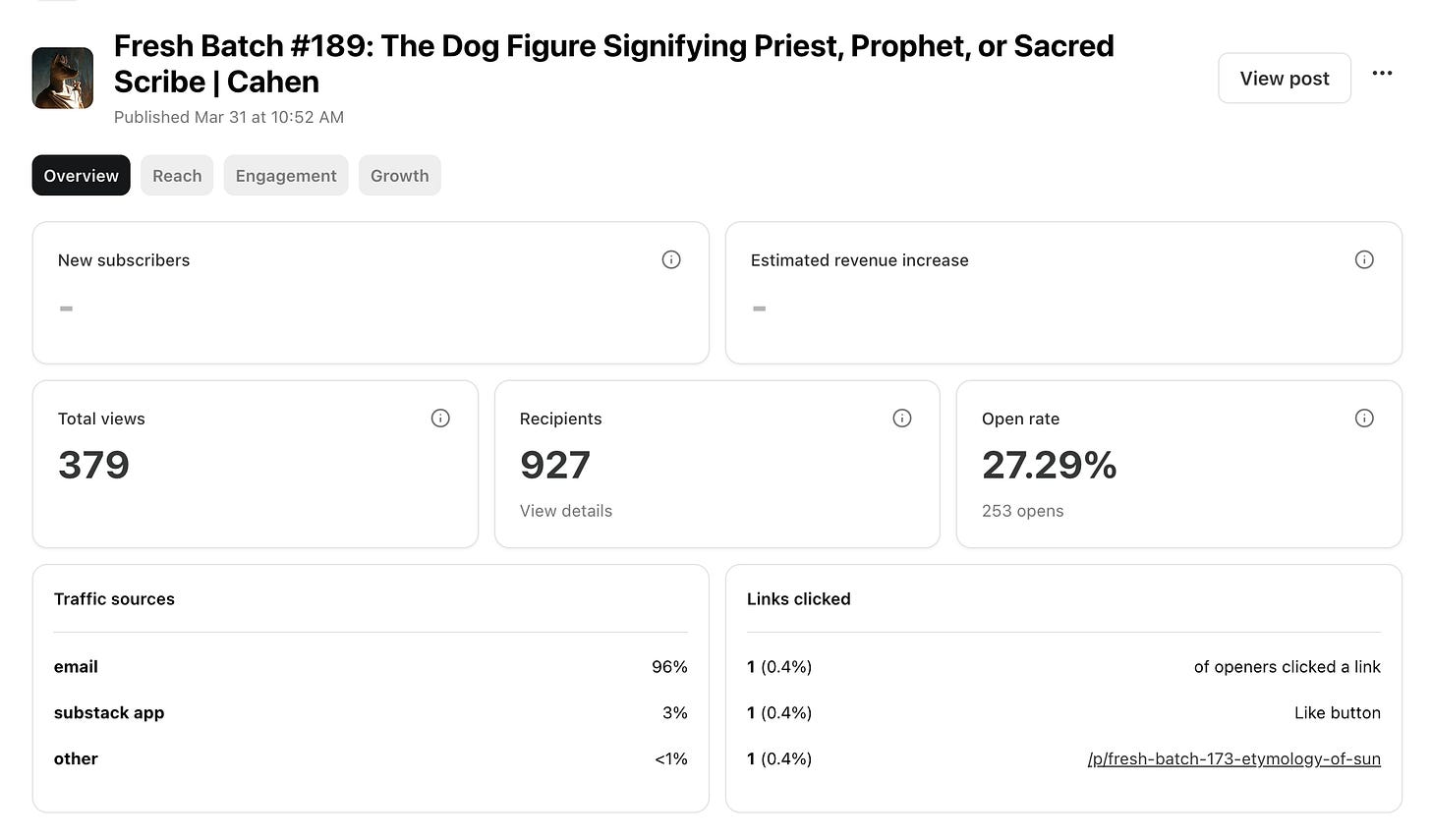Fresh Batch #191: Osiris, Canaan, Atlanteans, Egyptian Maps
Derivatives of ΧΥΚΝΟΣ (CHYKNOS) & Temple Science
Reminders:
If you are a new subscriber, make sure to add the email address that sends you these posts into your contacts. Otherwise, they will not make it to your inbox after a while.

All articles can be listened to through the Substack app for those who don’t prefer to read.
Jacob Bryant wrote (Analys. Anc. Myth. pp. 369-70.), “Phaeton is represented by many of the poets as the offspring of the Sun, or Apollo: Sole satus Phaethon. (Phaeton, born from the sun. Ovid. Metamorph. L. 1. v. 751.) But this was a mistake, and to be found chiefly among the Roman poets. Phaethon was the Sun. It was a title of Apollo; and was given to him as the God of light. This is manifest from the testimony of the more early Greek poets, and particularly Homer, who uses it in this acceptation. Ουδεποτ’ αυτους Ηελιος Φαεθων επιδερκεται ακτινεσσιν. (Regarding the Cimmerians, Phaeton the sun doe not shine on them. Homer. Odyss. L. 11. v. 15. Phaethon was universally allowed to be the Sun by the ancient mythologists of Greece; to whom we must appeal, and not to the Roman poets. Phaethon was the same as Phanes: and there is something very mysterious in his character. He is represented as the first born of heaven.) In respect to Cycnus (Κύκνος; Cygnus) and his brotherhood, those vocal ministers of Apollo, the story, which is told of them, undoubtedly alludes to Canaan the son of Ham; and to the Canaanites his posterity. (I cannot stand how Bryant uses that word undoubtedly prior to making a claim, in the context of the historical record, because the claim is most certainly doubted as history.) They sent out many colonies; which colonies, there is great reason to think, settled in those places, where these legends about swans particularly prevailed. The name of Canaan was by different nations greatly varied, and ill expressed: and this misconstruction among the Greeks gave rise to the fable.
Again (Ib. pp. 373-74.), “The father of this people is represented in the Mosaïc history, according to our version, Canaan: but there is reason to think that by the Egyptians and other neighbouring nations it was expressed Cnaan. This by the Greeks was rendered Χναας (Chnaas) and Χνας (Chnas); and in later times, Χνα (Chna). Χνα, όυτως ή Φοινικη εκαλειτο–το εθνικον Χναος. (Chna, that’s how Phoenicia was called—the national name of Chnaos. Stephanus Byzant.) We are told by Philo from Sanchoniathon, that Isiris the Egyptian, who found out three letters, was the brother of Cna. The tribe of Cush was styled by Manethon, before the passage was depraved, Υκκουσος (Ukkousos). Uch, says this author, in the sacred language of Egypt signifies a king. (Υκ καβ’ ίεραν γλωσσαν βασιλεα σημαινει. [I’m not sure about the context being exclusively the Egyptian sacred language, as it might be more universal than merely Egypt.] Josephus contra Ap. L. 1. c. 13. p. 445.) Hence it was conferred ass a title upon the God Sehor, who, as we may infer from Manethon and Hellanicus, was called Ucsiris, and Icsiris (Osiris, Υσιρις [Usiris], according to Hellanicus. Plutarch de Iside et Osiride. The Hellanicus citation is Usiris, not Ucsiris, so I don’t agree that Ucsiris may be inferred.); but by the later Greeks the name was altered to Isiris and Osiris. And not only the God Sehor, or Sehoris was so expressed; but Cnas, or Canaan, had the same title, and was styled Uc-Cnas, and the Gentile name or possessive was Uc-cnaos, Υκ-κναος: το εθνικον γαρ Χναος (Uk-knaos: nationally called Chnaos), as we learn from Stephanus (fl. 6th century AD). The Greeks, whose custom it was to reduce every foreign name to something similar in their own language, changed Υκκναος to Κυκνειος, Uc Cnaus to Cucneus; and from Υκ Κνας (Uk Knas) formed Κυκνος (Kuknos). Some traces of this word still remain, though almost effaced; and may be observed in the name of the Goddess Ichnaia. Instead of Uc-Cnaan the son of Ham, the Greeks have substituted this personage in the feminine, whom they have represented as the daughter of the Sun. She is mentioned in this light by Lycophron: Της Ήλιου θυγατρος Ιχναιας βραβευς. (The sun’s daughter Ichnaias was prized. Verse 129.) They likewise changed Thamuz and Thamas of Canaan and Egypt to Themis a feminine; and called her Ichnaia Themis. She is so styled by Homer. (Hymn to Apollo. V. 92.)
I’m not sure about Bryant’s claim that Ichnaia is used adjectively in this instance, but he claimed that Ichnaia Themis (Ίχναιη τε Θεμις) signified Themis, or Thamuz, of Canaan. Generally, kai means and in Greek. So I think Bryant is correct that it is adjectively used, because in the instance prior, it it is written Διώνη τε ‘Ρείη (Dione te Rhea), and Dione is the mother goddess, as is Rhea, which can be interpreted as the moon or the sun in any of the feminine portions of the sky. The modern translation of Ichnaia and Themis (from Ίχναιη τε Θεμις) is incorrect. He noted similar named cities of the ancient world, from Ichana in Sicily, Achnai in Thessaly, and Boeotia, as well as Arachnaion, the Hill of Canaan, or Canaanitish mount, in Argos. This is an interesting interpretation, which depends on the Mosaic “history” being accurate, which it was demonstrated not to be. Thamuz is represented by the sun in June, the Constellation Cancer, and Thomas. I wrote in Godsacre for Winds of the Soul, “Canaan’s root is kana, which is to syncretize, or to give up individual leanings in order to unite more effectively as a group, while kin’a means bundle or pack. Recall the Hebrew word for whirl is tevél, and so Tubalcain is the whirl of Canaan, the synchronizing of the stars.”
To learn more about astrotheology and the other forms of universal priestcraft, invest in the Spirit Whirled series. To learn about the historical implications, invest in The Real Universal Empire.







Become a member to access the rest of this article.
Keep reading with a 7-day free trial
Subscribe to Ancient History, Mythology, & Epic Fantasy to keep reading this post and get 7 days of free access to the full post archives.






